It’s here! Public Health AmeriCorps
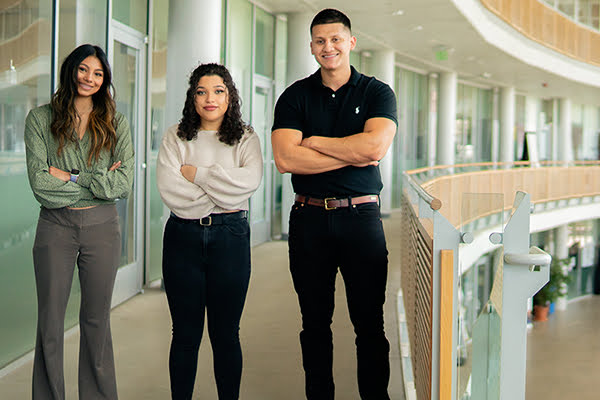
Empowering public health students, mentors and community programs
More than 25 years ago, Allie Stender worked for AmeriCorps where she managed mentors for a youth afterschool program on her undergraduate university’s campus.
Now an assistant teaching professor in Northern Arizona University’s Department of Health Sciences, Stender said she has seen a greater challenge in training and retaining people in the field of public health, especially during the COVID-19 pandemic.
With a growing concern for creating public health heroes, Stender found an answer through Russ Dickerson, assistant director, and Andrew Facemire, senior community program coordinator, from NAU’s Center for Service and Volunteerism, who approached her about bringing Public Health AmeriCorps to NAU.
Her answer was a very enthusiastic, “Heck, yes.”
“To me, this is exactly how we get students ready and prepared, outside of their content and knowledge areas, for the workforce in a more practical capacity [to increase their] professional skills,” Stender said.
In September, AmeriCorps in partnership with the CDC awarded the team a $2.1 million grant to establish the Public Health AmeriCorps at NAU. Along with Stender, Dickerson and Facemire, the team also includes Kristen Konkel, associate teaching professor, and Rachel Billowitz, teaching professor, both in NAU’s Department of Health Sciences.
According to Stender, the CDC partnered with the AmeriCorps federal agency to create Public Health AmeriCorps as an intentional workforce development strategy to partner with existing federal systems to offer students opportunities to develop their competencies before they enter the workforce.
“We’re looking at addressing health, health inequities and inequities in the workforce, particularly with this grant, and our focus has specifically been northern Arizona and our rural communities as well as understaffed program interventions at the community level across the state,” Stender said. “The idea is that we’re capturing people early—or even before their careers start—to help build their competencies so that not only can they move into the workforce and fill gaps, but also move up and take on more leadership and responsibility because they have this additional experience with the support of AmeriCorps, which involves a lot of training and development.”
Undergraduate public health students have a fieldwork experience internship that Stender said almost perfectly matches the service requirements for Public Health AmeriCorps. In addition to receiving an AmeriCorps living stipend and a Segal Education Award upon completion of their service term, students in Public Health AmeriCorps will also receive six credits after completing their internship.
“This is a recognizable national service organization and has been in existence for over 30 years,” Stender said. “People recognize the experience of being an AmeriCorps member as something of unique value that parallels other national service organizations. In a lot of ways, it opens doors for conversations and connections and networking that’s really hard to quantify.”
AmeriCorps allows students some financial flexibility to complete the internship option—the modest living stipend and education award allow students an opportunity to afford an internship who might not otherwise be able to do so.
To join Public Health AmeriCorps, members are required to:
- Be 17 years or older (no upper age limit).
- Hold one of the following citizenship statuses: U.S. citizen, U.S. national, lawful permanent resident alien.
- Pass a fingerprint-based background check.
Facemire said that Public Health AmeriCorps trainings cover a wide variety of topics including how to write impactful reports and how to address equity issues with Indigenous populations, veterans, and people who are LGBTQI.
“The members themselves drive what they want to get training in,” Facemire said. “I think that’s really important and powerful because no two groups of people are the same.”
Public Health AmeriCorps at CHER
The Center for Health Equity Research (CHER) and Southwest Health Equity Research Collaborative had seven AmeriCorps undergraduate seniors working this year: Sarah Chatter, Hailey Clinton, Lahna Gensler, Alexis Henninger, Alexandra “Lexa” Ingram, Javier Lopez, and Gabriela Monterroza.
Clinton, a public health major graduating with her Bachelor of Science this month, said she heard about AmeriCorps through her professors.
“I wanted to be an AmeriCorps member because I wanted to grow personally and professionally in the workforce,” said Clinton. “AmeriCorps is focused on taking on individuals that want to make a difference in their communities and I sought this experience to gain that and build on additional skills.
Kelly McCue, senior research coordinator, is mentoring Clinton as well as interns Henninger, Chatter and Ingram. She said was grateful for all of the work, enthusiasm and innovation her Public Health AmeriCorps students bring to the CHER projects they are engaged in.
“I loved having four AmeriCorps students this semester! Shout out to Hailey, Alexis, Lexa, and Sarah,” McCue said. “They each brought unique skills, energy, and personalities that were incredibly well-suited to their projects and teams this semester. I wish I could hire them all!”
Monterroza, an undergraduate public health major graduating this month, worked with faculty mentor Sara Shuman, assistant clinical professor, Department of Health Sciences, on a project titled “Homelessness and Health Equity in Northern Arizona.”
“I decided I wanted to become an AmeriCorps volunteer because of the AmeriCorps mission statement, ‘to improve lives, strengthen community … ,’” Monterroza said. “Through the project that I am a part of, I hope to do just that, as well as work with others to take actionable steps toward the common goal. I am greatly appreciative of my time as an AmeriCorps volunteer.”
Monterroza said that as an AmeriCorps volunteer, she learned the importance of teamwork, collaboration, and also “communication, innovation, and a common goal to create a positive impact on our communities.”
Lopez, also an undergraduate public health major graduating this month, worked with Ricky Camplain, assistant professor in the Department of Health Sciences and CHER, on a project titled “CHER Criminal Justice and Healthy Lifestyles.”
“From my experience as an AmeriCorps volunteer, I gained a deeper understanding of the health inequities that are present in the criminal justice system,” Lopez said. “Being able to understand the issue is one of the first steps to addressing the issue and how the population of interest is affected.”
Samantha Sabo, professor with the Department of Health Sciences and CHER, was Gensler’s mentor.
She said that AmeriCorps is vital to getting students connected to the community and that they gain invaluable experiences that stay with them forever.
“Our AmeriCorps student has traveled throughout rural communities in northern Arizona to talk with and learn from low-wage-earning residents about what health equity looks and feels like for them,” Sabo said. “She has gained experience in community outreach and innovative assessment such as Photo Voice, and she is now contributing to a strategic plan that translates these community voices and images into recommendations for policy and decision-makers to achieve healthy rural communities.”
Sabo said that Gensler will return to her hometown in Alaska where she will pursue her Master of Public Health.
“Through her experience with AmeriCorps and our team, she will be able to jump right in to engage and serve Alaskan Native residents with humility and respect,” Sabo said.
Stender said that mentors are a key component of Public Health AmeriCorps and that their commitment to the students allows them to create meaningful community connections.
“Our faculty and staff are helping our students to really grow into the kind of people we want to work with, and we want to have taken care of our communities,” Stender said.
AmeriCorps student bios
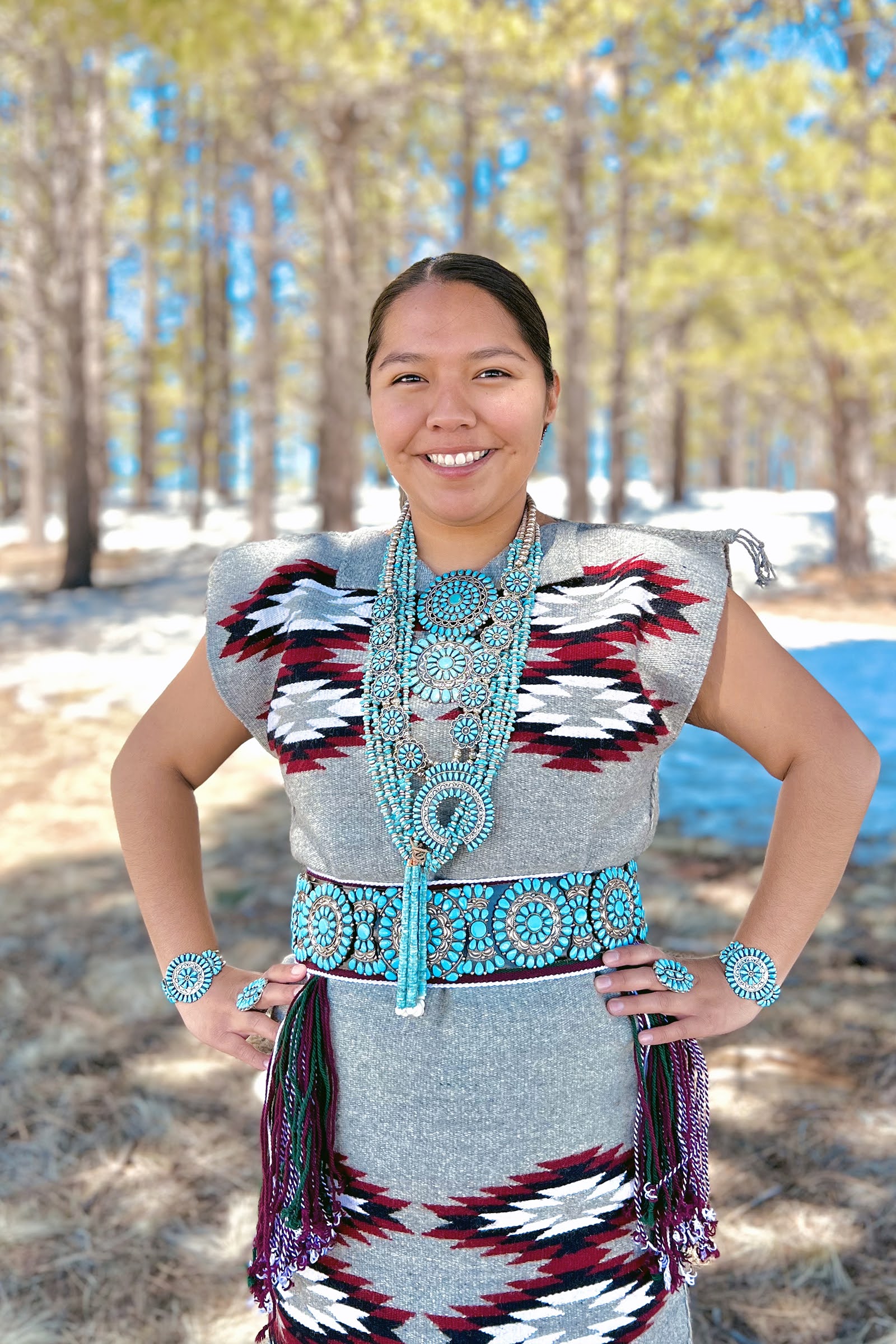
Sarah Chatter
Major: Public Health
Graduation date: Spring 2023
Mentor: Kelly McCue
Project: Coordinating and planning the Indigenous Summer Enhancement Program (ISEP) & Summer Research Enhancement Program (SREP) for Native American high school and college students interested in gaining exposure to health science and public health research.
Why did you want to become an AmeriCorps volunteer? How did you hear about it? I heard about AmeriCorps previously in class, but it was not until Kelly reached out to me as a previous SREP student that I became interested in working with AmeriCorps. The unique position of working under AmeriCorps in partnership with the Navajo Native American Research Center for Health (NARCH) to help coordinate a program that I was previously involved in and enjoyed immensely was a great opportunity I could pursue to give back to students whose position I was once in.
What have you gained from your experience as an AmeriCorps volunteer? I believe that being an AmeriCorps volunteer has allowed me to expand my time management, communication, and organizational skills as time was dedicated to school, work, and AmeriCorps while all of life’s happenings took place as well.
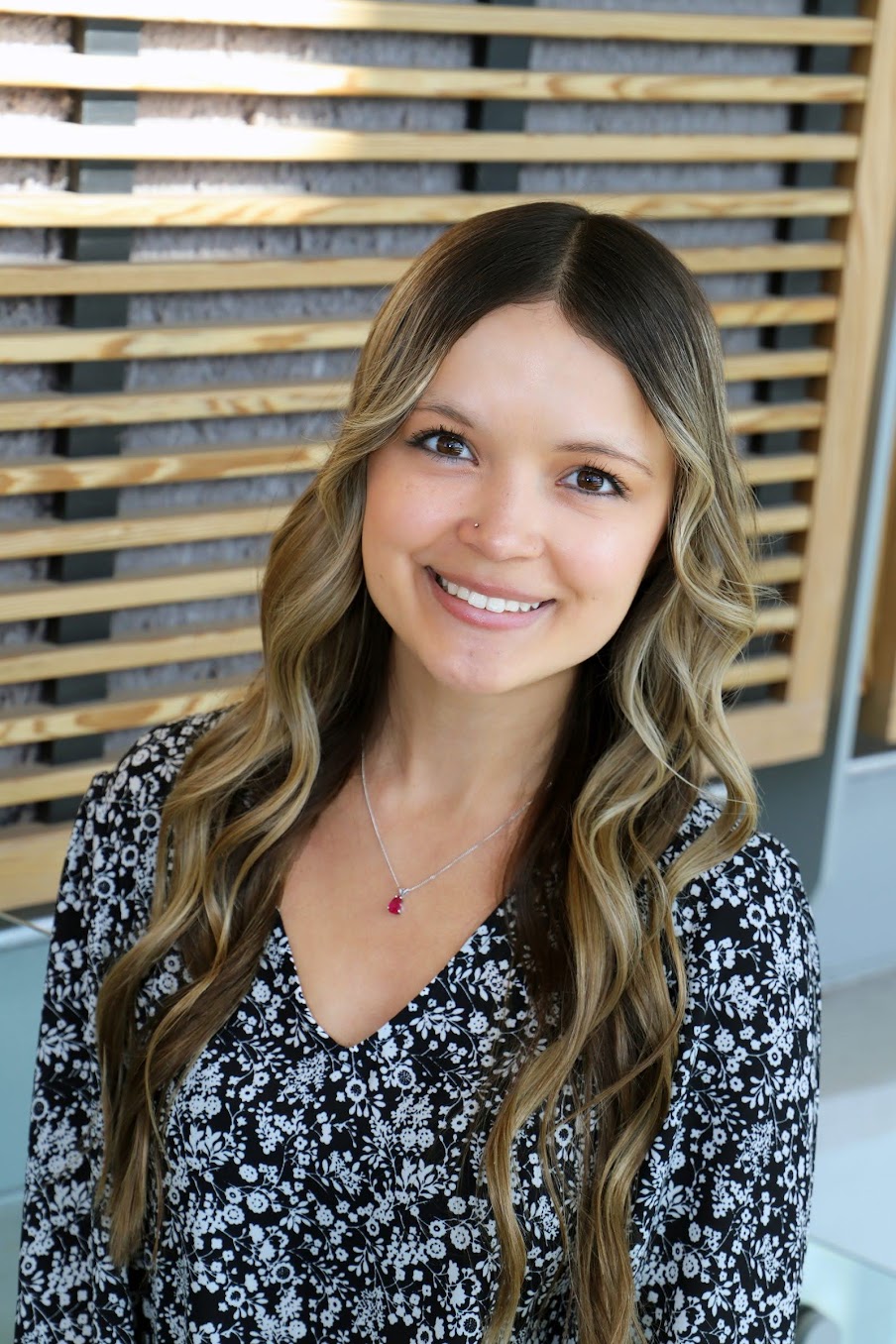
Hailey Clinton
Major: Public Health
Graduation date: May 13, 2023
Mentors: Kelly McCue and Mark Remiker
Project: I am currently working on a project called Yavapai Communities for Young Children (YCYC) using a collective impact approach. We are in partnership with First Things First Yavapai region and 10 stakeholders ranging from CEOs to members of organizations in Yavapai County. We are working on identifying goals to address social determinants of health to improve outcomes for children ages 0-5 and their families in this region.
Why did you want to become an AmeriCorps volunteer? I wanted to be an AmeriCorps member because I wanted to grow personally and professionally in the workforce. AmeriCorps is focused on taking on individuals that want to make a difference in their communities and I sought this experience to gain that and build on additional skills. I heard about AmeriCorps through the Public Health teachers when they presented information about the internship options available to students.
What have you gained from your experience as an AmeriCorps volunteer? As an AmeriCorps member, I have gained experience in teamwork and problem-solving through this project. These skills are important in the workforce in order to generate successful solutions towards a goal and proper communication between one another in a team. Since AmeriCorps is focused on innovation, implementation, improvement, and expanded impact I have been able to gain experience in each of these areas through this project and working with research coordinators, CEO’S, and leaders of various organizations.

Alexis Henninger
Major: Public Health
Graduation date: May 13, 2023
Mentor: Kelly McCue
Project: NAU CHER Lactation Spaces & High Country Lactation Care
Why did you want to become an AmeriCorps volunteer? I became a member because I was in Alllie Stender’s class when she announced her involvement in getting NAU to adopt the AmeriCorps program and was captivated by her passion for the opportunity. I realized it was a great way for me to experience real-world scenarios that would leverage my public health knowledge that would prepare me for post-grad!
What have you gained from your experience as an AmeriCorps volunteer? I have gained new community connections with powerful women in Flagstaff that are passionate about ensuring everyone, regardless of ability to pay, has the opportunity to confidently breastfeed their child. I have learned how to research and write grants to increase funding for a non-profit, communicate professionally, be a part of a university program, and overall what it means to be a public health worker.
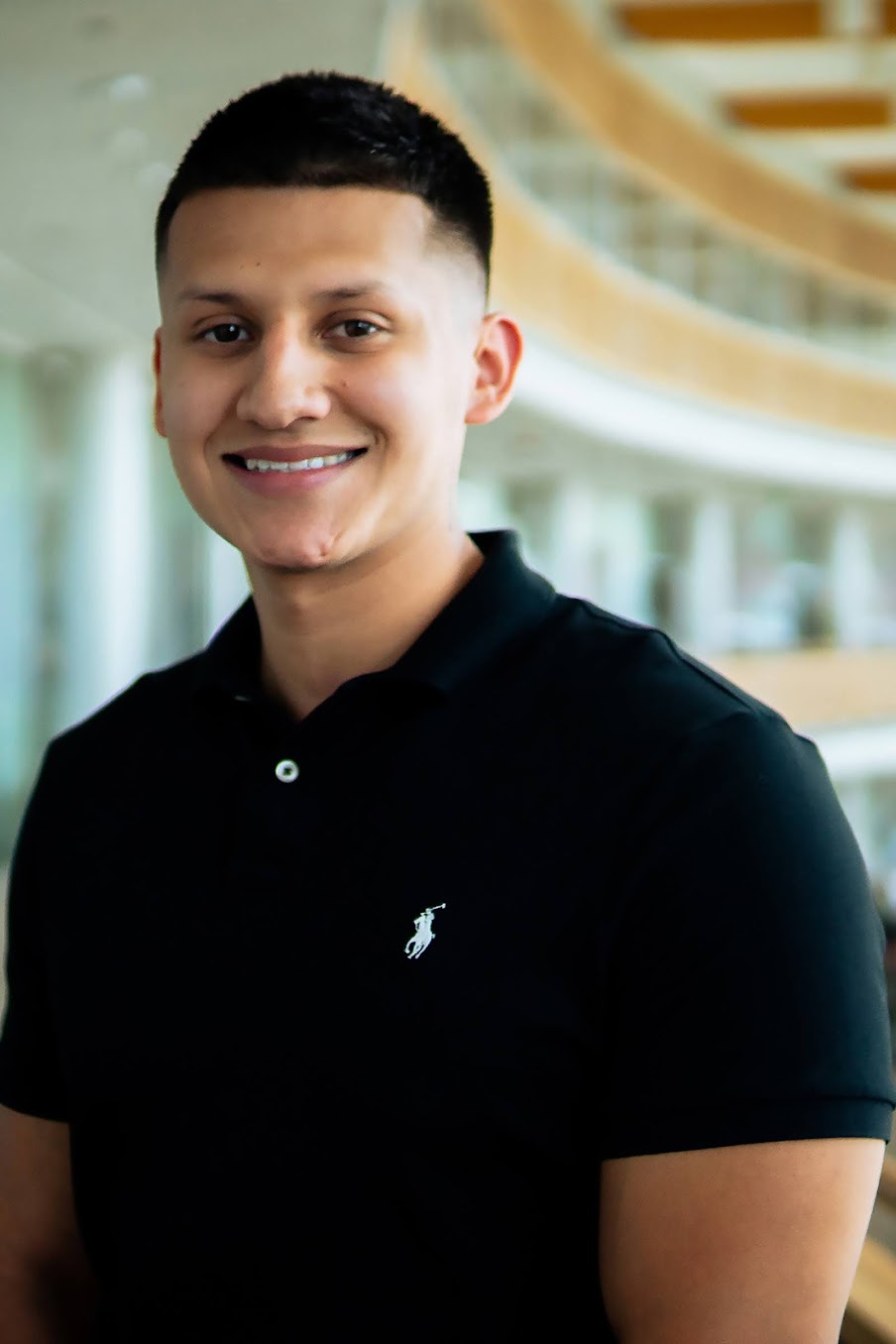
Javier Lopez Jr
Major: Health Sciences -Public Health
Graduation date: May 13, 2023 (Spring 2023)
Mentor: Ricky Camplain
Project: NAU CHER Incarceration Project
Why did you want to become an AmeriCorps volunteer? I first heard about the AmeriCorps in the classroom where I learned about how one can participate in community service, engagement, and learning, which were all things I wanted to gain experience in. I figured this type of experience would be the perfect opportunity for me to be able to put my foot in the door for any other future opportunities. On top of that, it is always great to be able to make an impact on the community level and learn more about present health disparities or inequities.
What have you gained from your experience as an AmeriCorps volunteer? From my experience as an AmeriCorps volunteer, I gained a deeper understanding of the health inequities that are present in the criminal justice system. Being able to understand the issue is one of the first steps to addressing the issue and how the population of interest is affected. I have also learned to appreciate the diverse backgrounds and experiences of the research team I was working with. Lastly, I have gained some skills, knowledge, and attributes that can be transferred into future experience opportunities that I can’t wait to apply.
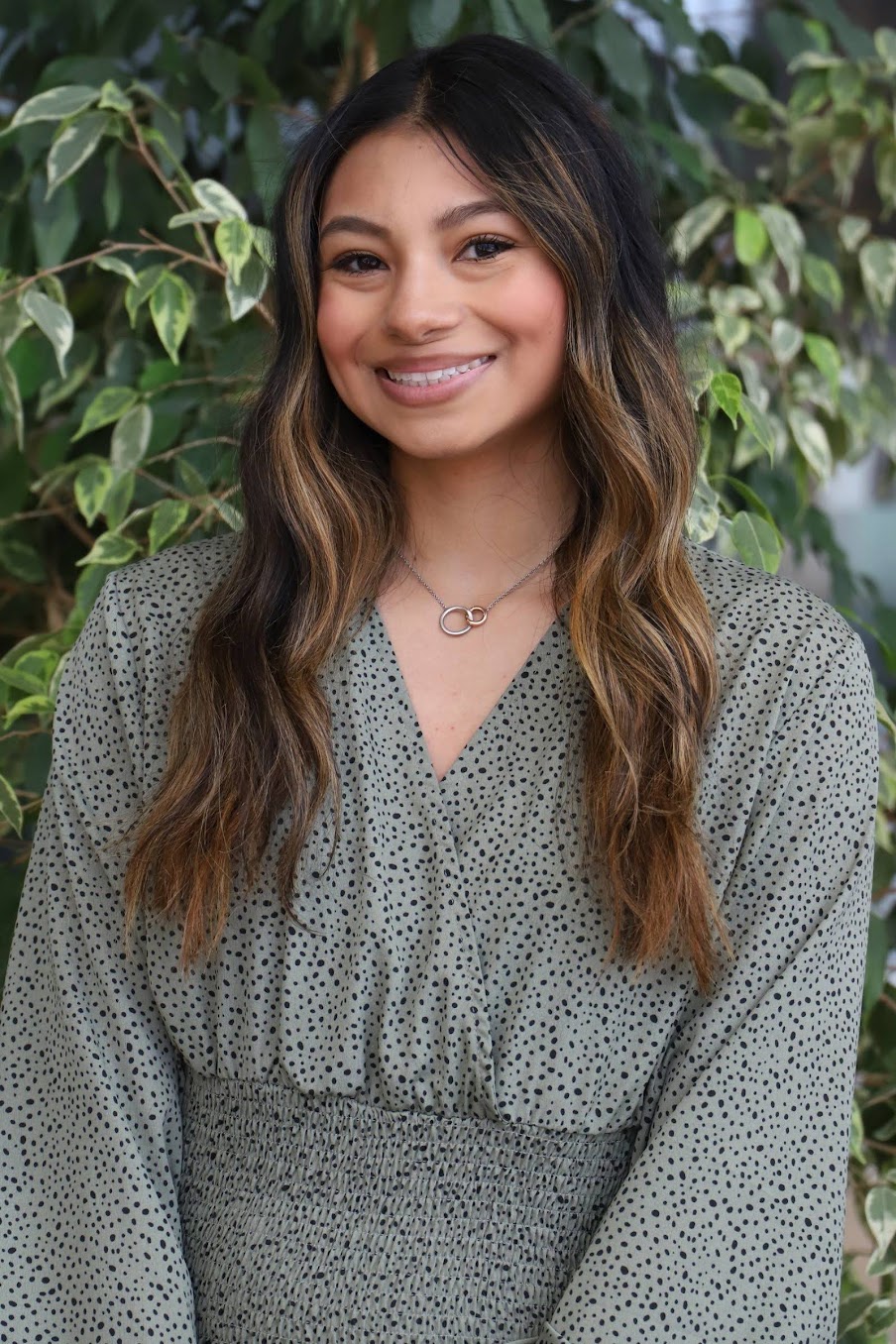
Gabriela Monterroza
Major: Public Health Major with Biology Minor
Graduation date: May 2023
Mentor: Sara Shuman
Project: Homelessness and Health Equity in Northern Arizona
Why did you want to become an AmeriCorps volunteer? I decided I wanted to become an AmeriCorps volunteer because of the AmeriCorps mission statement, “to improve lives, strengthen community…” Through the Homeless and Health Equity in Northern Arizona project that I am a part of, I hope to do just that, as well as work with others to take actionable steps toward the common goal. I am greatly appreciative of my time as an AmeriCorps volunteer.
As I am graduating from the Public Health Program at NAU, I was fortunate to have faculty provide information about AmeriCorps volunteers and how we as Public Health majors can create a bridge to strengthen communities through AmeriCorps.
What have you gained from your experience as an AmeriCorps volunteer? As an AmeriCorps volunteer, I have learned the importance of teamwork. As I continue on the Homeless and Health Equity in Northern Arizona project, we as a team are dedicated to the process. Collaborating with different universities and organizations for one common goal requires communication, innovation, and the common goal to create a positive impact on our communities.